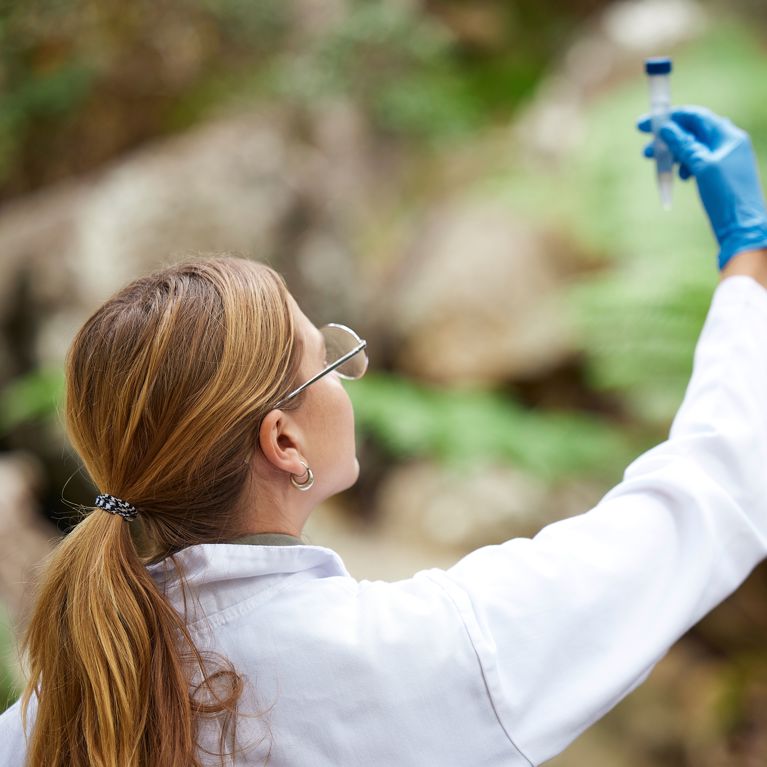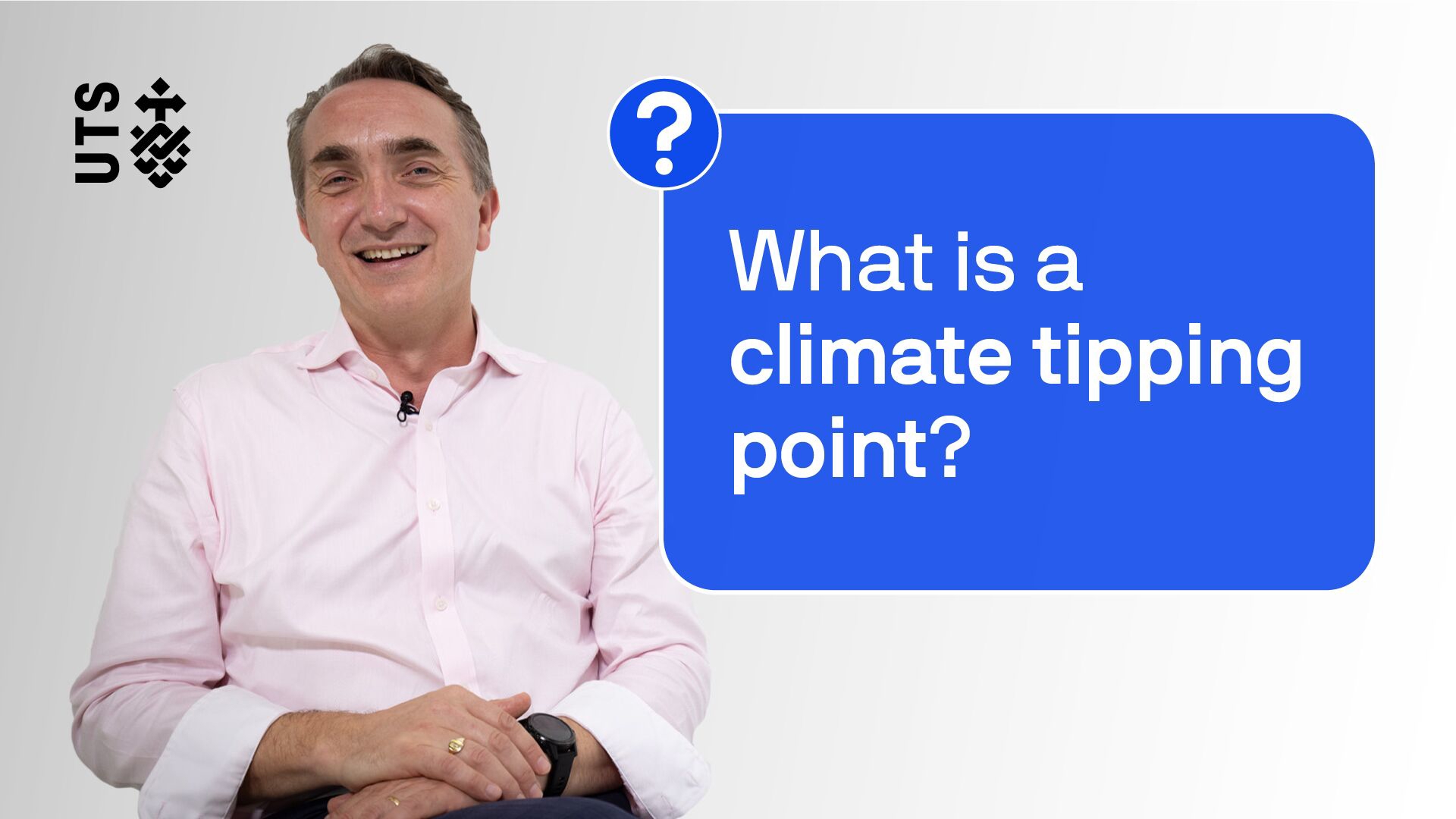Addressing climate change will take innovation and action from all corners of industry, government, education, startups, not-for-profits and communities.
UTS’s Professor Chris Turney shares his thoughts on the careers and job titles that have the most potential to act on climate change now and into the future.
Climate change isn’t just an issue for environmental specialists – it impacts every industry, from engineering and finance to healthcare and education. Tackling it requires diverse skills and a mindset that embeds climate responsibility into how we live, work and innovate.
From reducing energy and food waste to improving supply chains, designing greener buildings, and developing zero-emission technologies, every profession has a role to play.
Professor Chris Turney, Pro Vice-Chancellor of Research at UTS and a climate and Earth sciences researcher, looks at six careers that will be key to tackling climate change.
1. Environmental policymakers and regulators
Professionals working within government bodies, such as the Environment Protection Authorities (EPA) across Australia and internationally, play a critical role as regulators. They guide businesses in meeting climate targets, reducing emissions and remaining accountable for their environmental impact. These experts develop and enforce policies that drive industries toward more sustainable practices.
As Australia ramps up efforts to achieve net-zero emissions, demand is growing for skilled professionals in this space – particularly those with expertise in environmental science, environmental law, policy development and sustainability.
2. Researchers and educators
Researchers are playing a key role in developing practical solutions to address climate change. At UTS, current research projects include carbon capture technologies, such as using algae to absorb CO₂ from industrial processes, as well as advancements in renewable energy systems.
Other research focuses on improving the safety of lithium-ion batteries and exploring sustainable fashion solutions that reduce textile waste and support circular manufacturing practices.
Equally important are educators who prepare the next generation to think critically about sustainability and take meaningful action in their careers. This involves everything from designing courses on climate science to nurturing a mindset that encourages environmental responsibility.
“A big part of what we do at universities is helping students to think creatively and critically, discover their skills, and learn how to apply their knowledge to solve real-world challenges,” says Turney.

3. Startups and entrepreneurs
Startups are often pioneers of new solutions, bringing fresh ideas to market. In 2019, for example, UTS researchers partnered with a then little-known Australian startup, V2, to develop plant-based meat substitutes – a company that has since become a household name.
More recently, biotech startup Algenie has been collaborating with UTS researchers to harness the potential of algae in producing a range of bioproducts, including sustainable plastics and building materials, advancing the transition to a more sustainable economy.
“There will be things we haven't even thought of yet that will be incredibly important,” says Turney.
“Being open-minded and creative enough to see future opportunities is key – and that’s where startups come in.”
4. Electricians and electrification specialists
As the world transitions to renewable energy, electricians and electrification specialists are essential. They are responsible for installing and maintaining technologies like solar panels, electric vehicle chargers and energy-efficient systems that are vital for reducing our reliance on fossil fuels.
Turney emphasises: “We have to electrify everything. Every machine that runs on fossil fuels needs an electric alternative. There needs to be a massive redeployment of renewable energy and storage. We can’t stick with fossil fuels.”
5. Carbon accountants and green finance experts
As sustainability becomes a priority for businesses and governments, carbon accountants and green finance experts help organisations measure emissions and ensure their investments align with climate goals. They provide expertise on how to integrate sustainability into financial decision-making.
For example, a carbon accountant might assist a company in calculating its carbon footprint and advising on ways to reduce it, while green finance experts partner with investors to fund clean energy initiatives.
These professionals play an important role in embedding climate action into financial strategies and decision-making.
This isn’t just about scientists in labs or policymakers making decisions – it’s about everyone, in every job, considering how they can contribute to a more sustainable future. It starts with us.
6. Community and not-for-profits workers
Community organisations and not-for-profits are vital in raising awareness and supporting those affected by a changing climate. These professionals work to ensure that policies and actions are inclusive, advocating for marginalised groups and helping communities build resilience across society. They also run education programs and raise funds to support climate action on a local level.
Climate action needs every career
While climate action can take many career paths, certain skills help individuals make a greater impact - regardless of their industry or role.
According to Turney, key skills for driving climate action include:
- Listening: Understanding different perspectives
- Communication: Explaining complex ideas in a clear and engaging way
- Creativity: Working together to find new solutions to tough challenges
- Adaptability: Making progress even when solutions aren’t perfect
- Hopeful determination: Believing that change is possible and staying committed.
Tackling climate change requires a collective effort. Every industry and business has a role to play, and with the right skills, ideas, support and commitment, we can all contribute to a more sustainable future.







